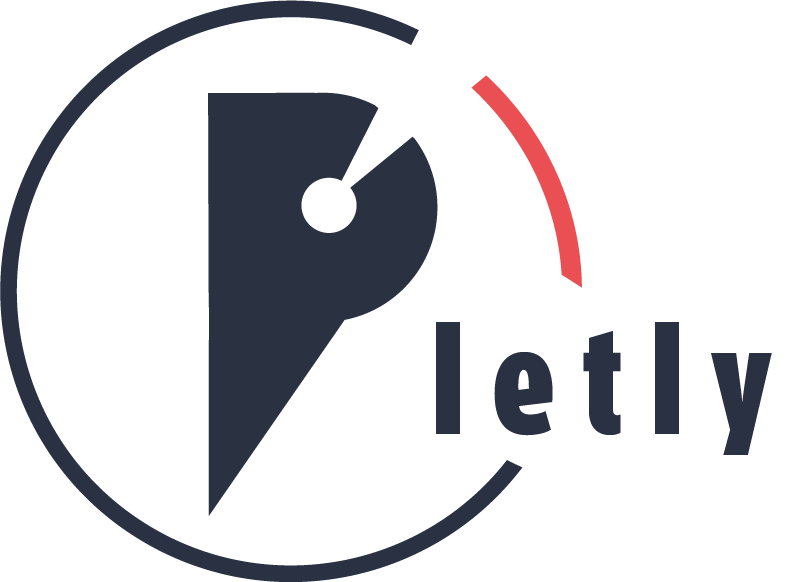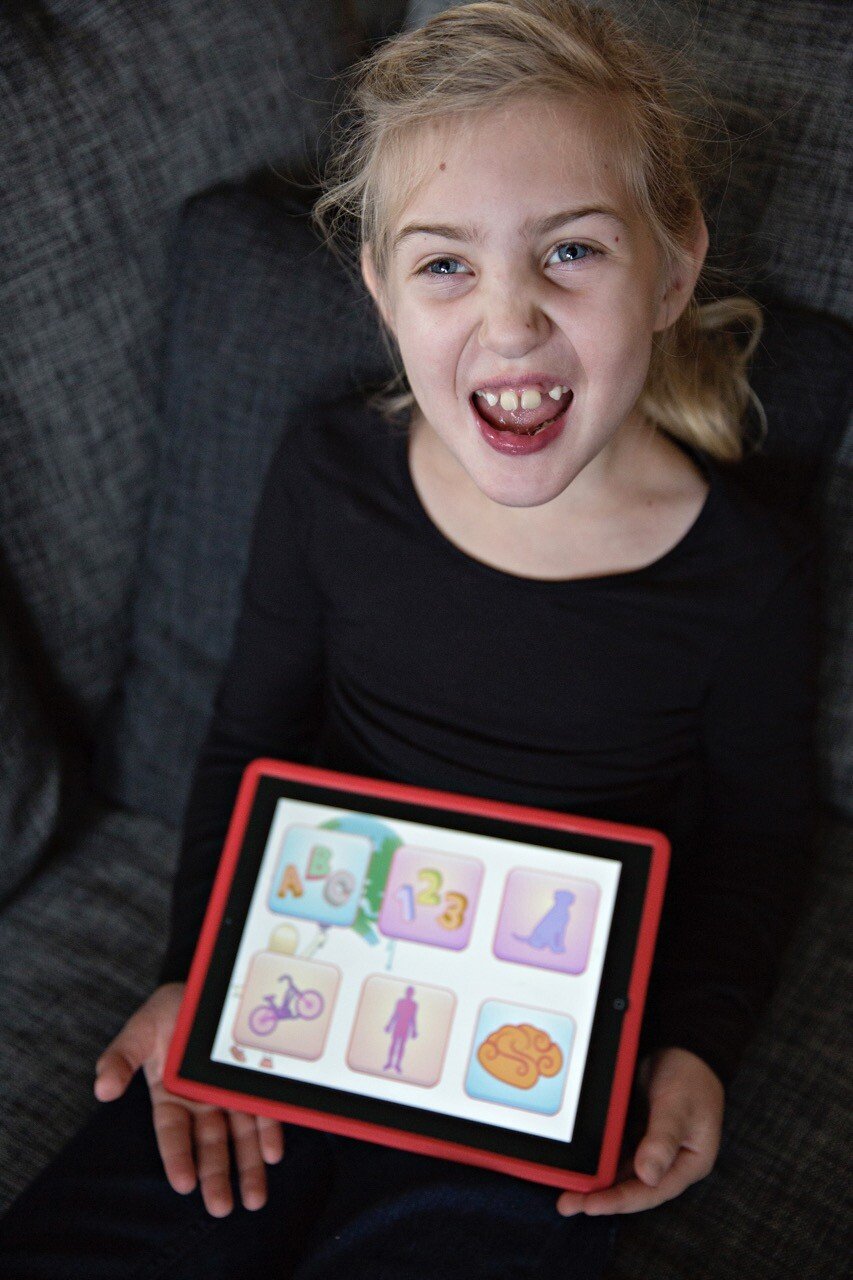EmpathyTech: A Vision for Empathy-Driven Innovation
Origin Story
EmpathyTech emerged from the personal and professional experiences of Marius Mathisen, founder of Pletly, who has spent the last 13 years at the intersection of caregiving and technology. In 2012, Marius began working to
make a difference in the caregiving space by developing “Angelinas Verden”(Angelina's World), a game designed to improve the cognitive training of his stepdaughter. This was the start of their personal quest to change the status
quo, driven by frustrations with the lack of effective technology at the time.
Angelinas Verden addressed these shortcomings by providing a more
engaging, personalized, and effective approach to cognitive development,
tailored specifically to her needs.
Marius and his wife, Jeanine, also experienced the negative consequences of ineffective communication and coordination. Many of their daughter's caregivers never truly knew who she was or understood her real needs.
The care given was not tailored to their daughter as an individual. The ineffective communication and coordination between caregivers, along with the lack of transparency regarding the care provided, often led to
inadvertent neglect. This contributed to an almost constant state of anxiety for Marius, Jeanine, and their family. Their frustrations ultimately motivated the founding of Pletly.
In founding Pletly, Marius and his team engaged in numerous discussions and networked with people and organizations across different areas of potential impact. However, a major challenge they encountered was the
siloed nature of these efforts. When speaking with different like-minded people in the same space as Pletly, the siloed nature of the community of people wanting to make a positive impact on others' lives was often pointed
out as a major challenge. Stakeholders often worked in isolation, and their well-meaning efforts lacked the collective power to create real solutions. This fragmented approach led to stagnation in addressing key issues. Pletly's unique position, with locations in both Europe and the U.S., highlighted another aspect of these silos—geographical isolation. By being present in both regions, Pletly can bridge the gap between different approaches to caregiving, share best practices, foster collaboration that spans borders, and provide insight into the importance of empathy-driven innovation and technology, ultimately helping to create a more unified community through EmpathyTech.
Too often, technology that serves no societal good—or worse, creates societal harm—receives financial backing. For example, social media platforms that prioritize engagement over mental health have been heavily
funded, while technologies like affordable assistive devices for people with disabilities struggle to secure support. Technologies that could make meaningful differences for underserved populations are underfunded and
overlooked.
In response to these challenges, EmpathyTech was created to break down silos. By fostering collaboration and building bridges between these isolatedefforts, EmpathyTech aims to create a global platform for empathy-driven
technological innovation. It focuses on raising awareness of the need for support in this space and creating a platform where stakeholders who genuinely want to 'walk the walk' can engage and actively contribute to
making a positive impact through technology and innovation. EmpathyTech brings together a community of people who share the same values, both locally and globally.
What Makes EmpathyTech Different
We are not just another health tech, social impact, or edtech conference. Many of these events have a single focus on technology. These events are also often dominated by larger providers who are rarely positioned to think
outside the box or have incentives to truly innovate. The participants at such events often form a homogeneous group, leaving little room for new inputs from diverse stakeholders or fresh perspectives. In the case of social
impact, they often lack a focus on technology or ambition for making a global, lasting change through innovation, instead limiting themselves to smaller, local scopes. While this local focus is necessary, it is different from
EmpathyTech's broader mission.
At EmpathyTech, we bring together people from diverse disciplines and backgrounds, such as health tech, social impact, politics, investment, care provision, advocacy, interest groups, and more—all united by shared values
and a genuine interest in making an impact through empathy-driven innovation. As a concept created by a startup, EmpathyTech follows an iterative process, much like a startup itself. We learn, adapt, and improve
with each event, always working toward our mission. We are not afraid to adopt what works from other conferences and drop what doesn’t fit our concept. Our aim is to make EmpathyTech events appealing, dynamic, and
impactful.
When people leave an EmpathyTech event, they should feel inspired, eager to make an impact, and motivated to spread the word about the concept. We want participants to become advocates for empathy-driven innovation and help us build awareness on a larger scale.
Mission and Goals
EmpathyTech seeks to inspire, educate, and mobilize key stakeholders—from healthcare professionals to social workers, educators, policymakers, and investors. EmpathyTech embraces a new approach to technology
development that centers on empathy. By prioritizing the needs of those most impacted, EmpathyTech encourages the creation of innovations that improve lives, particularly for underserved populations.
Key goals include:
Breaking down silos across sectors and geographies to foster a
more integrated approach to problem-solving.Challenging “ableism” - that underserved and underprivileged
groups somehow are less deserving of technology and innovation.
These groups, more than any others, stand to benefit from technology,
which can serve as a powerful equalizer and level the playing field.Raising awareness about empathy-first development for innovators,
ensuring that technology is designed with empathy for both the end
user and those implementing it.Addressing key societal challenges like health and education
equity, socio-economic disparities, and discrimination by advocating
for innovations that promote these values.Fostering collaboration among diverse stakeholders—care
providers, innovators, investors, and policymakers—to ensure
solutions are impactful and scalable.
What We Aim to Accomplish
EmpathyTech aims to:
Catalyze change in how technology is developed and implemented
across caregiving, healthcare, education, and other key sectors.Promote the adoption of empathy-driven innovation that takes
into account the lived experiences of those impacted by the
technology, particularly caregivers and underserved populations.Challenge societal norms that tolerate the shortfalls in technology
for underserved groups, advocating for equitable access to
innovations that can create positive change.Measure impact by tracking partnerships formed, investments
made, and policy changes sparked by the discussions and
collaborations facilitated at EmpathyTech.
Defining Success
Success at EmpathyTech is not just about hosting an event—it’s about creating a lasting legacy of tangible, measurable impact, such as increased adoption of empathy-driven technologies, new partnerships between care
providers and innovators, and policy changes that support underserved communities.
Specifically, we aim to:
Raise awareness and change mindsets among key stakeholders,
particularly in leadership positions, about the need for empathy-
driven technology.Create actionable outcomes by forming partnerships, making
investments, and influencing policy that supports the development of
empathetic and inclusive technologies.Inspire innovation by encouraging developers and companies to
adopt a more empathetic approach to product development, ensuring
that their technologies improve the lives of end users rather than
creating additional challenges.Challenge societal complacency by ensuring that underserved and
underprivileged groups receive the attention and resources they
deserve from technology and innovation.






